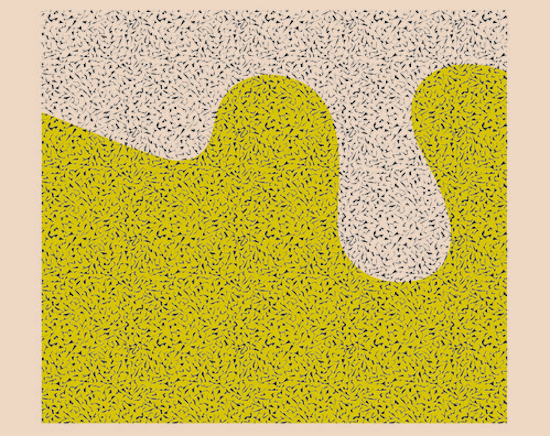I pick up Fernando Sdrigotti’s latest collection, Jolts, with serious intent for the first time the day after Melbourne is locked down and a curfew is implemented to curb the spread of the coronavirus. The quote from Wendy Erskine on the cover promises the stories within to be “unsparing, funny and compelling.” I hope she’s right. I return to write this review a few days later. Jolts might not be the cure for the virus, but I think it certainly helped with the malaise of not having been able to go to the pub for the last several months. The stories in this book are from a different world where situations that once might have happened to any of us play out. The second story in this collection, ‘Turkish Delight’, is a good example of this by offering an escape to a simpler time, when one could sit at a bar, slightly pissed and slightly high, worrying only about whether the guy who promised a hookup will arrive before the supply runs dry.
Jolts is a different book from Sdrigotti’s previous opus, Shitstorm (Open Pen, 2018). There, he presented a phenomenology of what-it-is-to-be-very-online that somehow managed to distill the whirlwind of our networked lives and twenty-four-hour news cycles to produce prose that was relentlessly paced and incisive. In Jolts, he continues to examine and dissect our everyday lives, but here he is more personal, intimate even. The book consists of nine stories, which are described by the publisher as “confrontations to the limits of fiction and memoir.” We are invited into the author’s life, to go with him to revisit moments that shaped him and his writing. Each story a flashback to a different time in the author’s life, giving us a self-portrait of the writer as he tries to understand himself and those around him. We accompany him as he goes about his daily business, to the grocery store, to a barbecue organized by his landlady, back to Buenos Aires where he reflects on what it is to be Argentinian, or to his childhood. We are invited to join him in his quest for self-knowledge.
The key question the book grapples with is one about identity, namely, how is it that we can come to understand ourselves through others? In the final story of the book, titled ‘Notes Towards a Return’, the narrator tells us at one point that he only “became Argentinean abroad”. By this, I take he means the question of identity matters more in the eyes of others, and only through them we can come to an answer, even if it is a frustrating one. In an important sense, the kind of identity we acquire through the eyes of his interlocutors is shallow. This is keenly felt with the narrator’s exasperation in ‘Barbecue and Exhumation in Victoria Park Village’ at being asked whether it is traditional to bring a gift to a barbecue where he’s from, how long he’d lived in London, how he likes it in London, whether he’s worried about being deported in the aftermath of Brexit. His otherness felt keenly only through the relentless questioning about his origins. In this story, all of the guests at the Landlady’s house are reduced to bare stereotypes. Besides the Landlady, there is the Former Banker, the Former Banker’s Writer Wife, the Boring Civil Servant, and her Common Unemployed Boyfriend. Our protagonist is the Tenant, but it quickly becomes apparent that the others see him rather as the Foreigner.
Sdrigotti is careful to remind us to not take too much at face value, but rather to suspend our judgements about what we read. Though he invites us to come with him as he revisits various seemingly unrelated episodes from his life, he proposes we take each point as part of something larger that we don’t get to see. In the story titled ‘Ceci N’est Pas Un Mémoire’ he writes, as if commenting on the book in our hands: “And after this all my life will have turned into an amorphous mass. Hostages of the narcissism of first person narration, the I who writes, and the written I, will have mixed to the point of unrecognition … And I may be trying to figure out what is actually real, and what made-up. Or I might well be rejoicing in the uncertainty”. This is a warning against taking Jolts too seriously as a memoir. But the book also is a memoir, at least among the other things that it is.
Ultimately, Jolts is a work of an author who wants to be known to his reader, but who is not to be trusted about himself. And that’s okay. There is joy to be found in the uncertainty of our relation to the narrator. It is a memoir that does not need to be read as such, and it is a fiction that is conscious of the reality from which it emerged. In this book Sdrigotti shows his keen eye for the world as well as his ability to draw us into his own actuality. The stories are set in a complete, lived-in reality and they bring to life the routine interactions and frustrations that make up the quotidian drudgery of existence. But they are not dreary. Rather, they are filled with details that make the universe alive. I was drawn to this book to escape from life in a pandemic. And so I have.
Jolts by Fernando Sdrigotti is published by Influx Press


